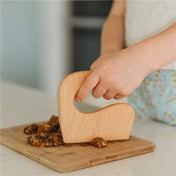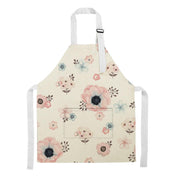As parents, we want to ensure that our curious little adventurers have the best foundation for cognitive and physical growth. However, where do we start? Is there a specific learning style that we should adopt to make the most of this chapter in our children’s lives?
One rewarding theory for parents is the experiential learning theory of educational theorist, David Kolb. The name says it all: learning through experience! Kolb identified a four-stage learning cycle that includes concrete learning, reflective observation, abstract conceptualisation, and active experimentation.
Unpacking Kolb's experiential learning cycle
Concrete learning happens when your child experiences something new for the first time or even in a new way. Let’s use the example of a climbing frame - your little one might have seen these frames in the park or at a friends home and now, when they have one of their own, it might just be their first foray into using this type of play equipment.
Reflective observation is when your child reflects on an experience they had. They might think about how much they enjoyed playing on their climbing frame and how it felt climbing up and seeing the world from another angle.
Abstract conceptualisation is when your child learns from their experience. For example, they might have learned to hold on tight when using their climbing frame, or if they climb up, they also need to climb back down!
Active experimentation almost needs no introduction – this is the part where your child will test out what they’ve learned! In the case of a climbing frame, your child will climb more often and use the skills they acquired through experience.
The beauty of Kolb’s experiential learning cycle is that there are no starting points per se – the goal, rather, is to go through the whole cycle and enter it at any stage (as long as it is in sequence, of course!).
Kolb’s unique experiential learning styles
Together with the four-stage experiential learning cycle, Kolb also identified four learning styles that fit in with each step of the process. This also gives parents a good guideline as to which situations will help their little ones to learn more effectively.
Assimilators are little ones who have a better learning experience when they have logical theories to ponder.
Convergers, on the other hand, will excel in their learning when they get real-world presentations of different concepts.
Accommodators are the hands-on kids who want to learn through practical experience.
Finally, Divergers want to observe and gather information.
What this means for your toddler
When toddlers learn through experience rather than just being fed information, it adds more value to their early childhood development in the long run.
They aren’t passively going through life: they are learning and exploring!
Learning through experience will teach little ones valuable life skills of problem-solving and processing information. It will help them to figure things out for themselves – after all, that is what learning is all about!
Are you ready to put Kolb’s experiential learning theory to the test?
Wondering if it will be difficult to bring this concept into your home?
The good news is it’s really not that complicated!
The most important thing is that your child has enough opportunity for learning, exploring and processing information. Educational toys and play equipment such as slides and frames will steer the course.
Being mindful of your little ones’ preferred learning styles and personalities when selecting toys for them will set in motion hours of playtime where their cognitive skills will grow together with their self-confidence.
So, get started today and let your little ones reap the rewards of this learning theory!




